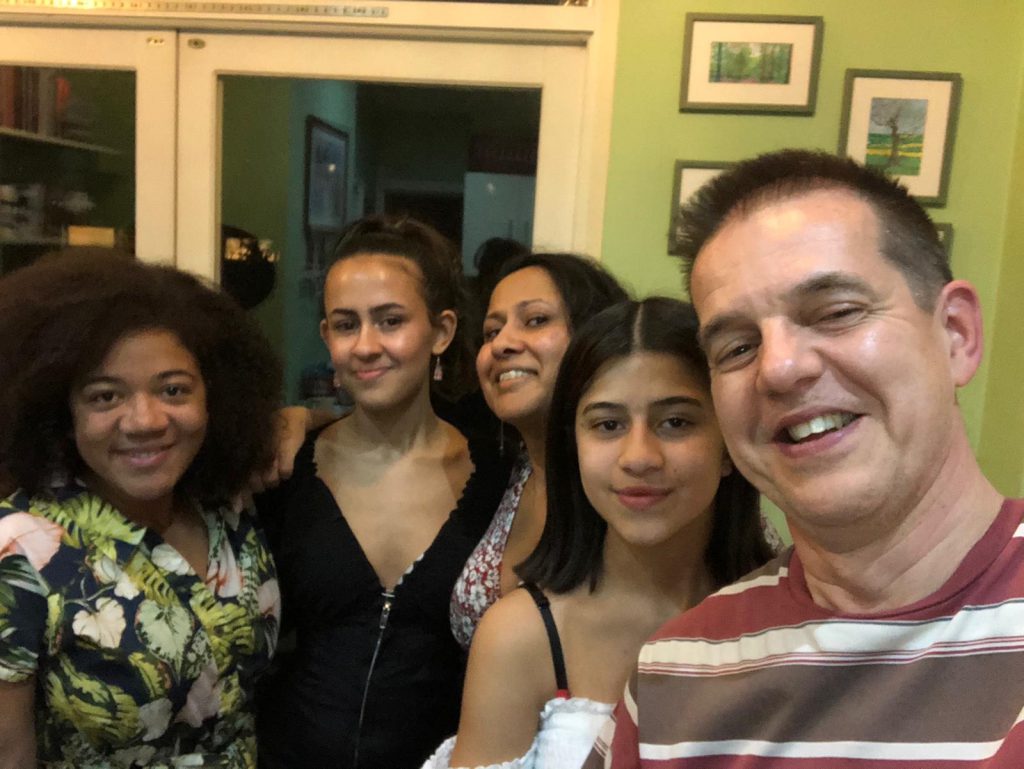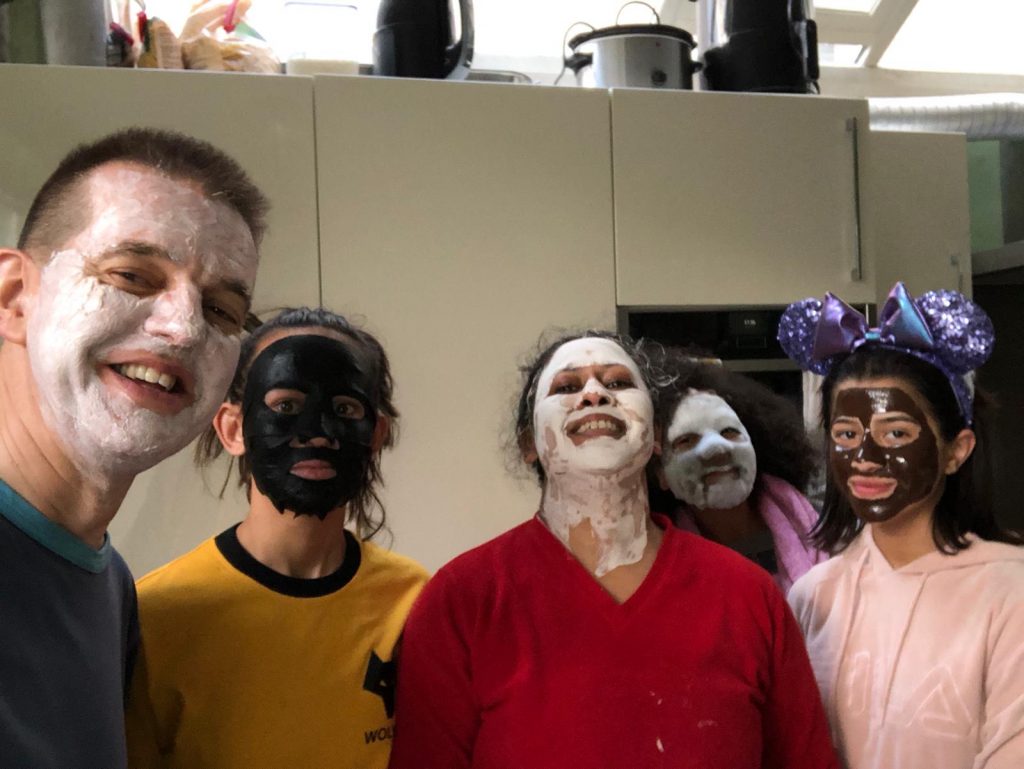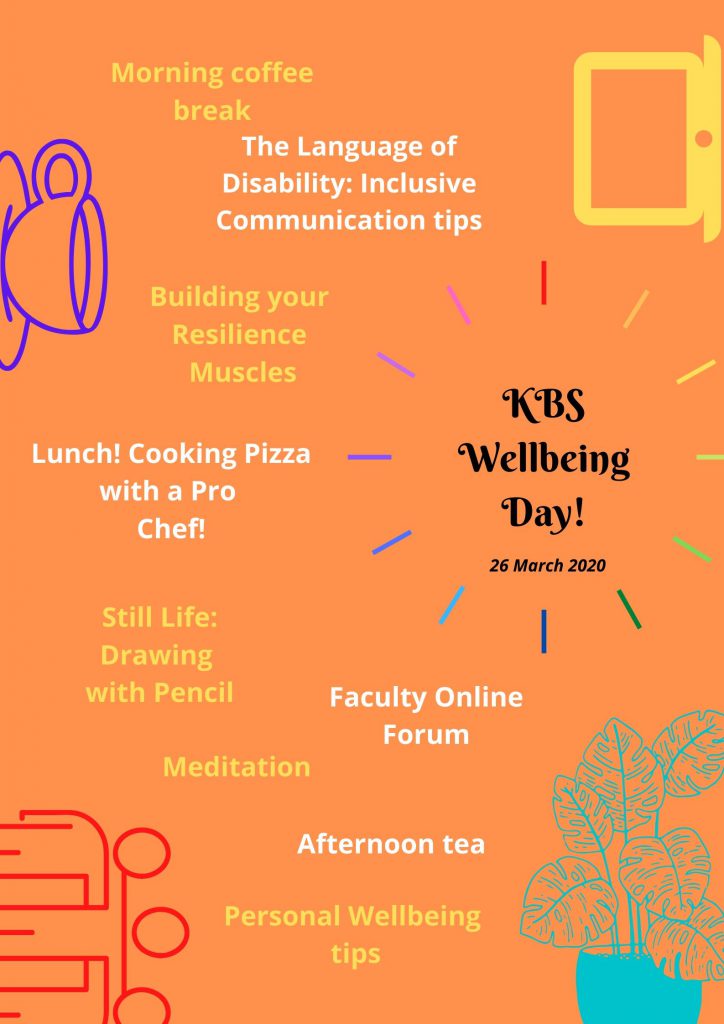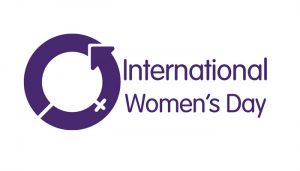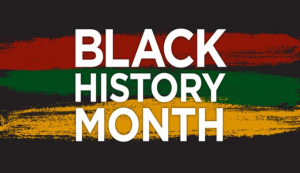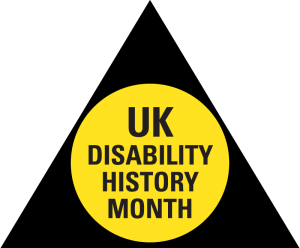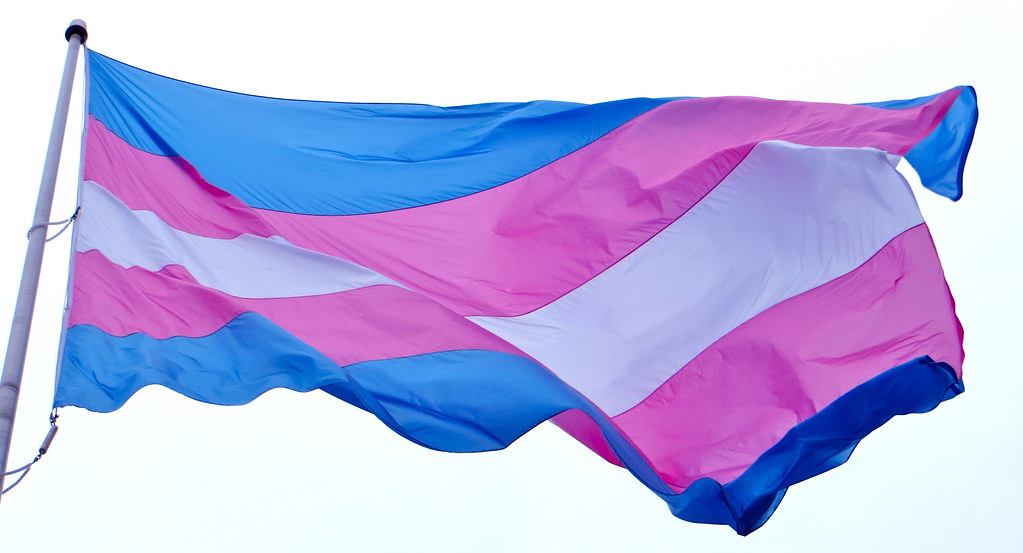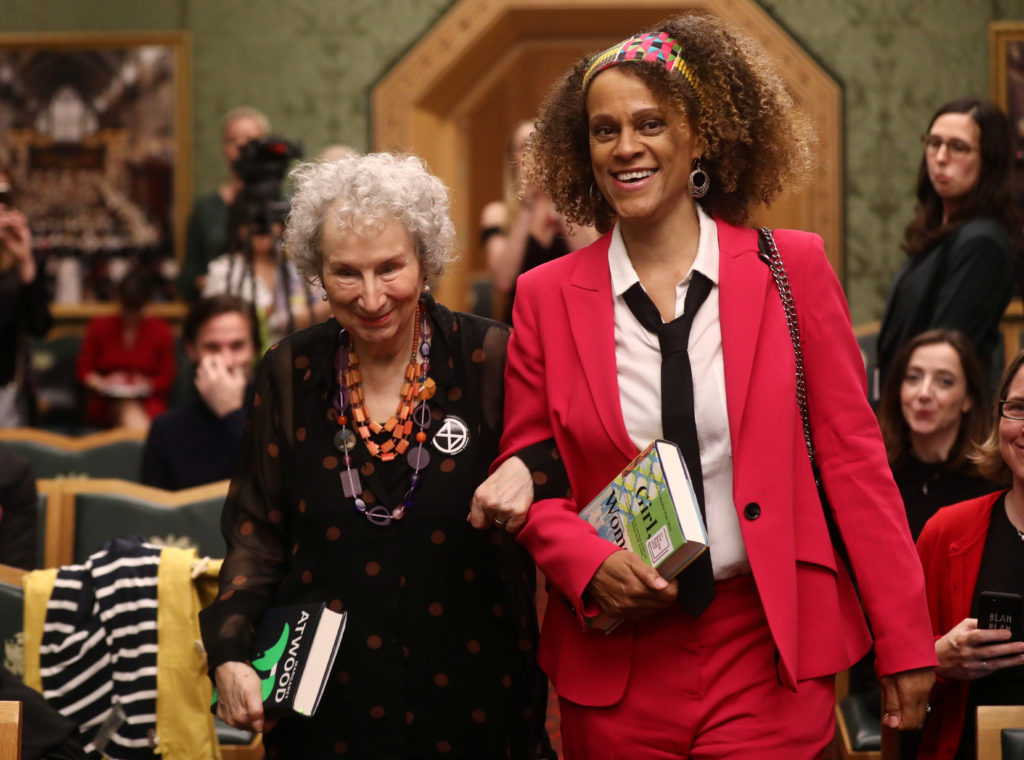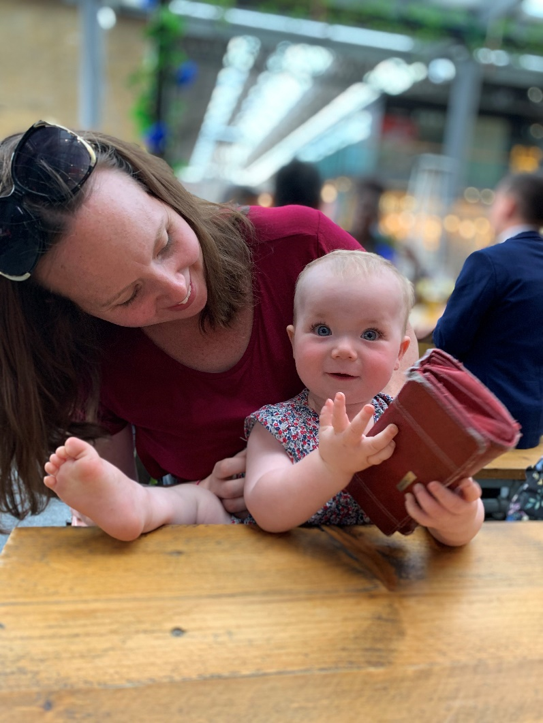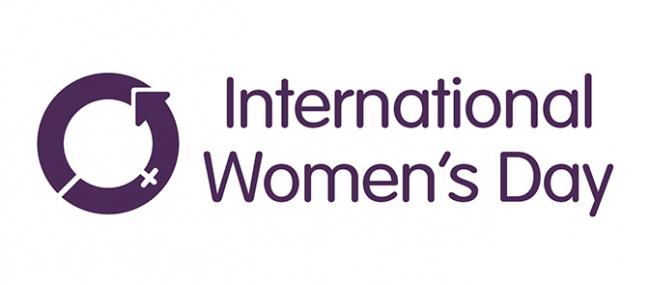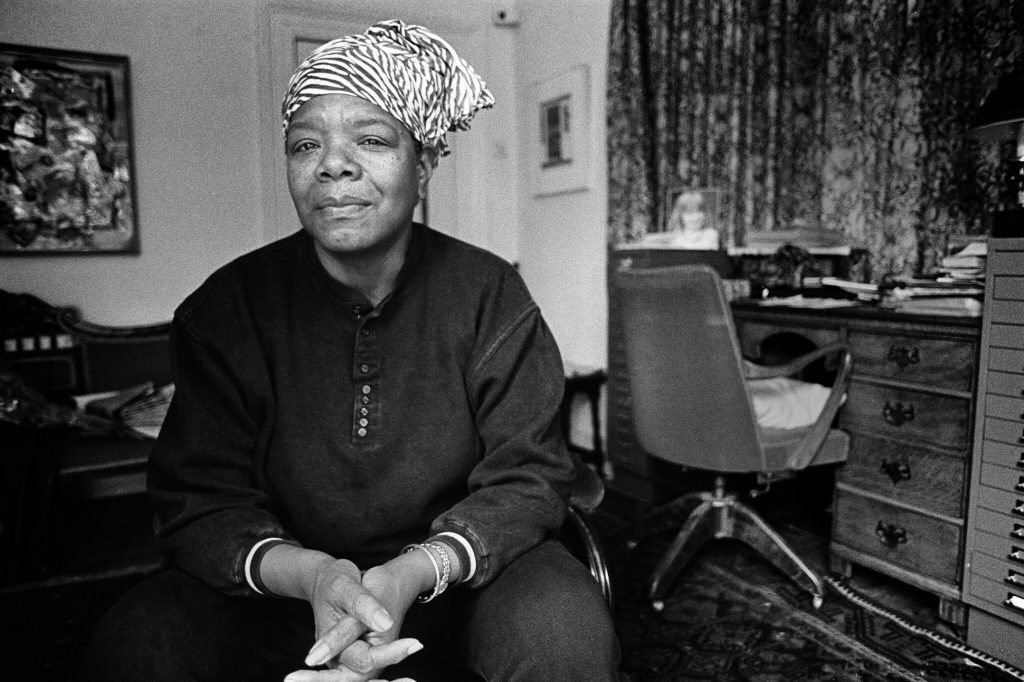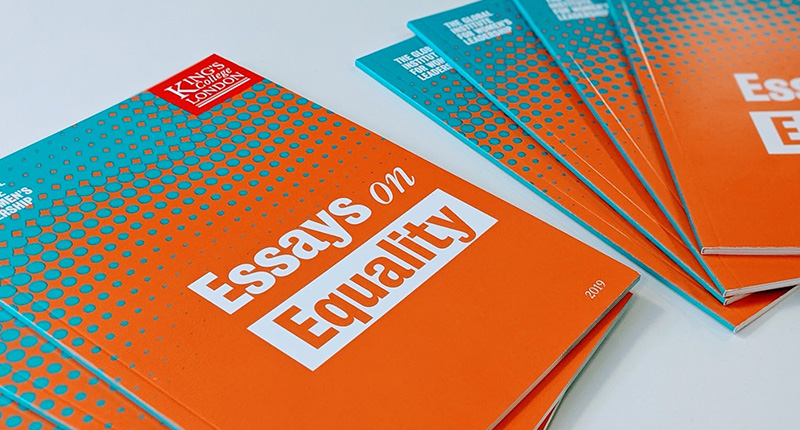Abbie Russell is the Administrative Support Officer for the Institute of Psychiatry, Psychology & Neuroscience (IoPPN) at King’s, working in communications and health and safety. She is the Disability Equality Champion at the IoPPN and chairs the Disability Inclusion Working Group. She is also the co-chair (community) for Access King’s, the staff disability inclusion network.

The IoPPN Disability Inclusion Working Group have collated these top tips for ensuring your online meeting or event is accessible. The list is non-exhaustive and we note that with accessibility should come flexibility, and that some of these tips will work for some people and not for others. Reach out to your audience and find out what works best for them!
Here we go…
- Provide as much information about the event beforehand (as you normally would) e.g. how to sign up/join the meeting; what meeting platform will be used
- The format of the meeting/event and who will be speaking. This helps to manage expectations and allow for any preparation beforehand.
- Check with presenters that they are confident in using chosen platform. Offer a short tutorial or test run ahead of the meeting.
- Share slides ahead of time to allow processing time and to allow for technical issues (e.g. if the slides don’t load properly, participants can still access the slides, and use their own software to take in the information.)
- Manage expectations and respect personal preferences (e.g. using video or microphone). For larger meetings, participants might be asked to join the meeting without video to improve the quality of the call. Alternatively, for a small team, participants may be invited to share their video if possible, to encourage participation.
- Ask participants to join on mute, especially if there are lots of people joining, to prevent noise and make it easier to hear the speaker.
- At the start of the meeting, outline the format of the event. E.g. what will happen and who will be speaking
- Ask participants to post comments and questions using chat function (or ‘raise hand’ to notify the chair on Zoom).
- Ask participants to introduce themselves before speaking, so that others know who is speaking.
- Highlight features such as chat functions and live captions at the start of the meeting
- Use live captions – this is good for people in loud environments or those with hearing impairment . MS Teams has an auto captions feature https://support.office.com/en-us/article/Use-live-captions-in-a-Teams-meeting-4be2d304-f675-4b57-8347-cbd000a21260 and Zoom provides closed captioning https://support.zoom.us/hc/en-us/articles/115002522006-Closed-Captioning-With-Zoom-Rooms.
- Blur background if you have a busy environment – this makes it easier for participants to focus on the speaker. However, be mindful that this feature is not available to all machines and a presenter may prefer not to.
- Make sure any materials shared before/after are accessible – use Microsoft Accessibility Checker https://support.office.com/en-us/article/Improve-accessibility-with-the-Accessibility-Checker-a16f6de0-2f39-4a2b-8bd8-5ad801426c7f
Further reading:
- Autistica – Hosting accessible online events, meetings and webinars https://www.autistica.org.uk/what-is-autism/accessible-online-events
- AbilityNet Live Webinar: How to Run Accessible Online Meetings for disabled people working and studying from home https://abilitynet.org.uk/webinars/how-run-accessible-online-meetings-disabled-people-working-and-studying-home
You can find more content like this on the Access King’s Yammer. Click here to read about the Access King’s community network and to get involved.


